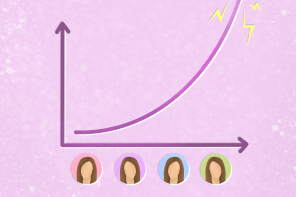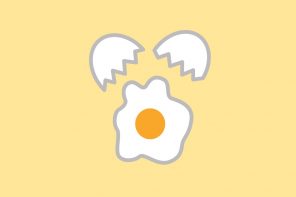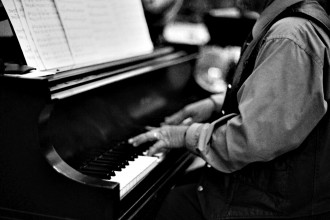A language or a science?
I am in my family’s dining room in Early June, staring at my laptop, and this question races through my mind. I had read through the U0 Freshman requirements on OASIS earlier that month. I understand that in order to reach U1, I would either have to take a year-long foreign language class, or I would have to undertake two math and science classes.
Naturally, I panic.
Foreign languages never came naturally to me, despite formal education in two of them from a young age. As for the physical sciences? I remember spilling a beaker of chemicals on a worksheet during high school chemistry and nearly erupting into tears. Neither option sounded great, but I had committed myself to this program in this tough, but rewarding institution. It was time to follow through!
After some head-scratching and asking around, I ended up signing up for a Biology class during the fall semester and an introductory Atmospheric Science class during the winter. Biology was great. It sat at the perfect balance of challenging but doable. The content was broad, and I felt motivated to attend class and learn each day.
Then came the Atmospheric Science class.
What started as a simple review of convection and condensation soon became a dizzying journey into the complexities of humidity and weather patterns. The content was beyond challenging. For a student more interested in studying civil rights movements and James Joyce, my science elective pushed me far beyond my comfort zone.
In my bewilderment, I returned to the OASIS link I had stared at months earlier. I rubbed my rheumy eyes and re-read the mission statement of the U0 Arts Freshman Program. Maybe I could extract some wisdom from the site.
“…Don’t limit yourself to only one or two disciplines — explore and keep your options open. You may be surprised to find out that you have other interests. You may even discover an area of study you had never considered before…”
Despite following OASIS’ guidance to explore new routes, I was overwhelmed. While I was adapting to the expectation of being able to churn out bi-weekly essays in four of my courses, I was also stuck in an elective class that exercised an entirely different faculty of my mind, yet demanded equal attention.
Instead of achieving well-rounded zen-ness, lines were forming on my forehead, and I was stressed. While my friends decided to fill the U0 blocks with more straightforward required courses—such as introductory classes in languages they already knew—I decided to tiptoe into an unfamiliar discipline, and my grades were suffering because of it.
I recognize the onus of the failure falls largely on me, but I can’t help but wonder if my struggle with my science elective illuminates larger flaws in the U0 Arts foundational year system.
The transition to one’s first year at university is preternaturally tough. Students are thrown into classes with little guidance, burdened with intense workloads, and for many U0 students, this is the first time we are truly operating independently.
How can a prospective political science student be expected to dissect complex readings in their first few months at McGill, and then simultaneously learn Javascript or Mandarin with similar rigour?
How can a student be expected to commit to a field outside their chosen discipline on top of all these other changes? How can a prospective political science student be expected to dissect complex readings in their first few months at McGill, and then simultaneously learn Javascript or Mandarin with similar rigour?
While I agree with the idea behind the U0 blocks—there is an undeniable benefit to taking courses that expand the breadth of one’s learning—this idea has lost effectiveness in its execution. As other student writers have articulated before, students flock to easy courses that guarantee high marks, and students who challenge themselves risk poor grades. The struggle is then determining how to upkeep the idea of exploring new disciplines alongside McGill’s expectation of academic excellence.
I offer two solutions. First, U0 Arts students should be able to take one of their three required freshman blocks under the satisfactory/unsatisfactory option. For those unfamiliar, the satisfactory/unsatisfactory option allows U1 students and above to designate up to one elective course each semester as not counting towards their overall GPA. The student either passes or fails their course. Their other courses then weigh more heavily towards their GPAs.
For U0s, upon declaring their majors/minors in April, students should be able to retroactively change one of the three freshman blocks to the satisfactory/unsatisfactory option. This option would allow new students to explore a diverse selection of academic routes before discovering which subjects best fit their abilities and interests, and it could prevent a student from panicking if one of these routes proves to be too demanding.
Why not provide courses that examine social sciences through the lens of a foreign language or physical science?
Secondly, McGill could offer science or language electives that speak to the Arts student’s prospective major. Our school offers an entire faculty that marries the humanities and the physical sciences. Courses such as Health & the Healer in Western History (HIST 249) and History and Philosophy of Mathematics (MATH 338) apply a liberal arts framework to understanding medicine and math.
Potentially, we could flip this interdisciplinary subject model around on its head. Why not provide courses that examine social sciences through the lens of a foreign language or physical science? These courses could include foundational geography that will help a student better understand international politics, or Latin that helps a literature student better dissect Romantic poetry.
We want the promise of a meaningful undergraduate degree—with rock-star professors, punchy papers, and bold ideas that stretch the limits of our thinking—but we also want to room to crash, burn, and rise stronger.
Students pick university programs that speak to their strengths, yet the U0 Freshman Arts program encourages us to take tough electives that highlight our weaknesses. Some are content with circumscribing the system for the sake of achieving high grades. Others swallow their GPA fear and accept the uncertainty outside their comfort zones.
I think most incoming Arts students lie somewhere in between. We yearn for a more even-handed approach to our education. We want to be pushed, but not punished. We want the promise of a meaningful undergraduate degree—with rock-star professors, punchy papers, and bold ideas that stretch the limits of our thinking—but we also want to room to crash, burn, and rise stronger.
The U0 Freshman Arts program remains idealistic but insufficient. It left some of my friends dropping challenging courses mid-year to safeguard their grades, and it left me crying in the library next to a cue card labelled “Altostratus” late on a Tuesday. Until the administration determines a more balanced approach to keeping our options open, my head—and the heads of countless other former U0s—will remain lost in the clouds.








